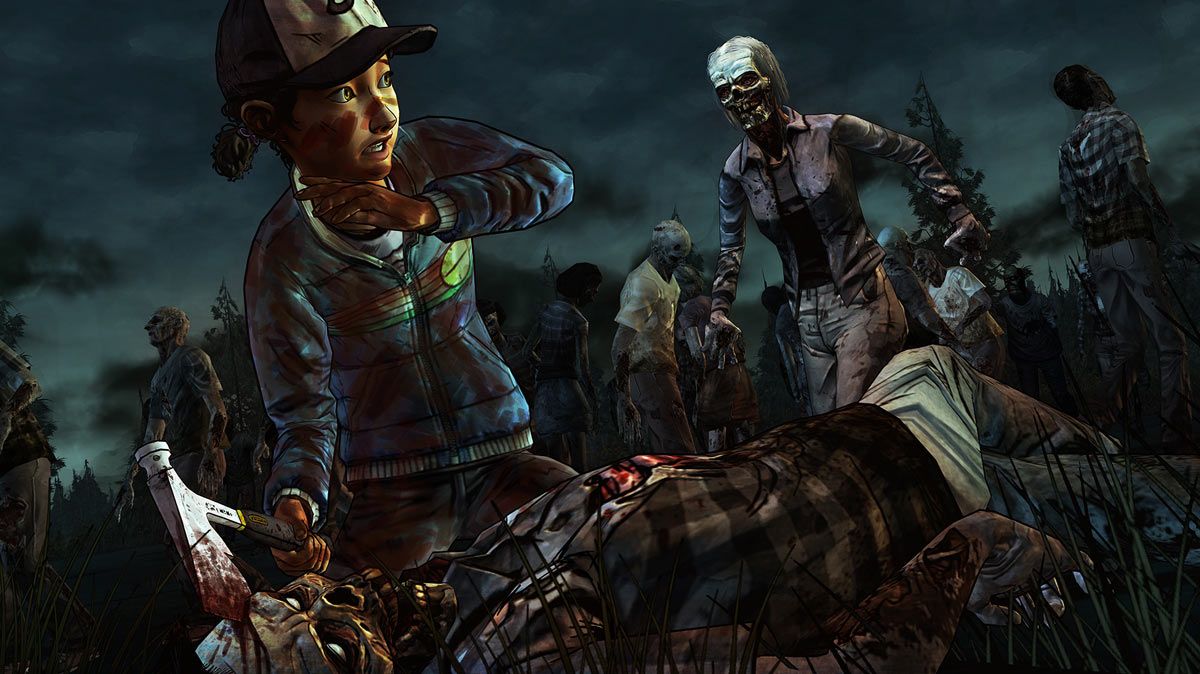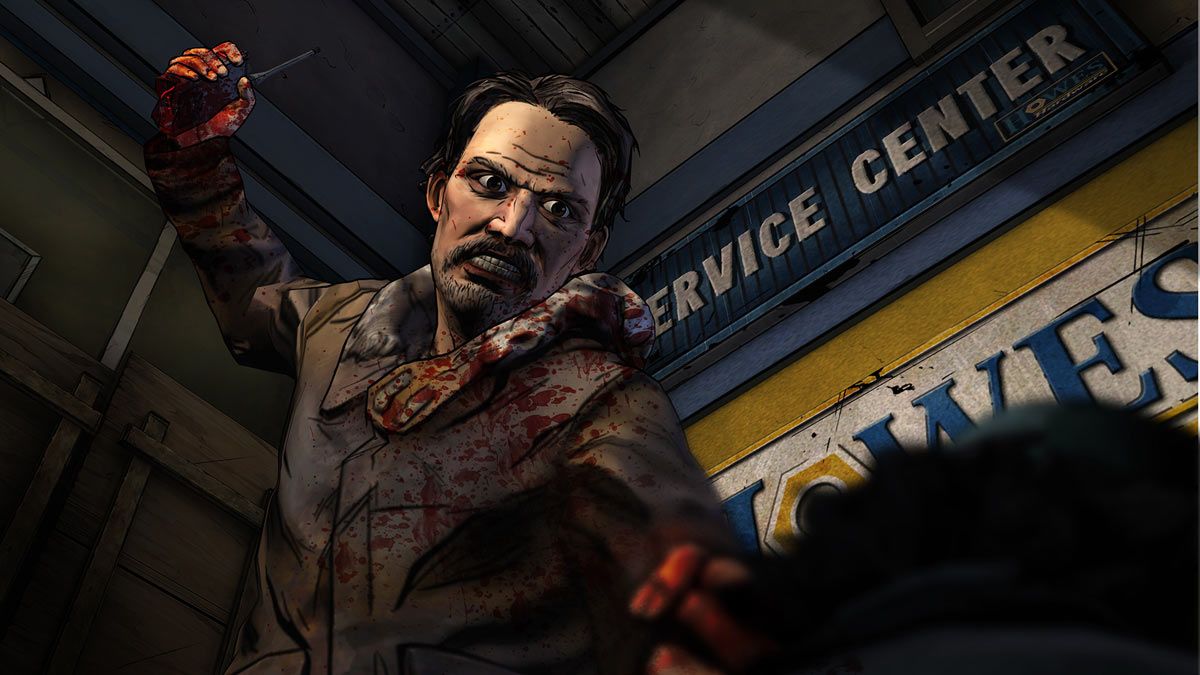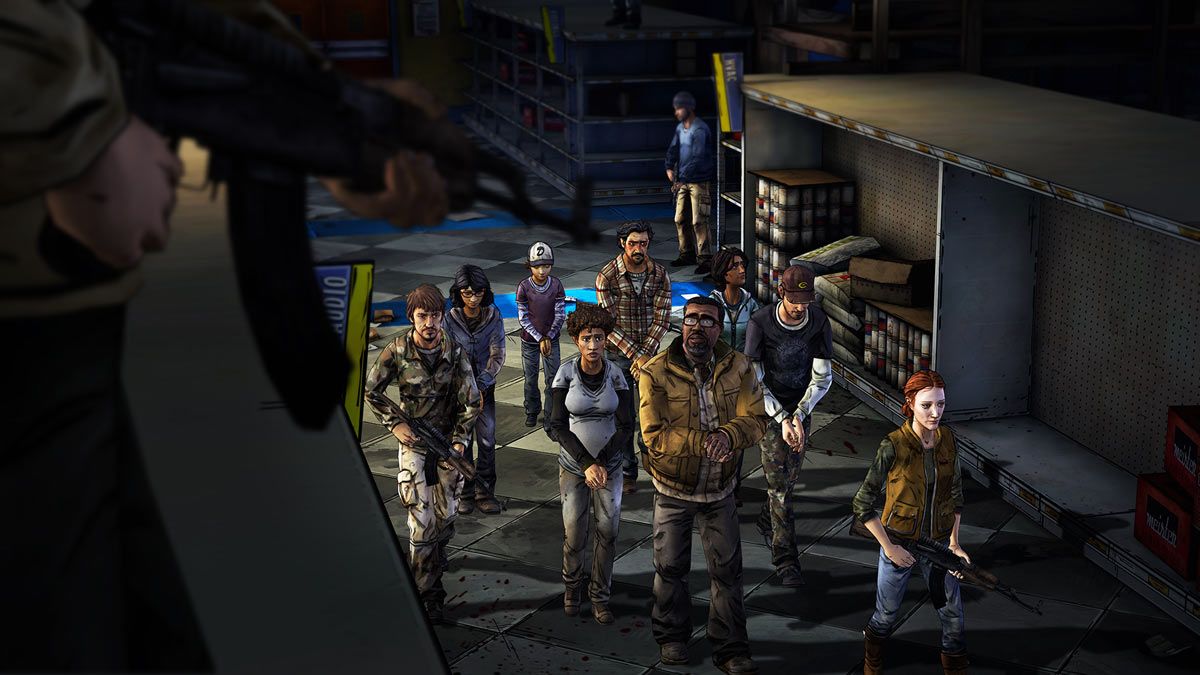"Regardless of intent, there are consequences for rash actions."
That level of meta-like dialogue is sprinkled throughout Telltale Games' latest episode of "The Walking Dead: Season Two," and as a metaphor for the player, it's unsurprisingly apt. Telltale's "The Walking Dead" has always been about choice, so it's not really news to say "In Harm's Way" is focused in the same vein, building off the choices that the player made as Clementine during the first three episodes.
As always, those who played Telltale's incredible "The Walking Dead: Season One" and its in-between-chapter, "400 Days" will have a far higher appreciation for "In Harm's Way" -- and not just because of some of the references to former protagonist Lee Everett, or the appearances from whichever survivors from "400 Days" came to Carver's community. Frankly, the decisions and the story beats are much more intense than the first season, at least partially because playing as Clementine feels so much more poignant. "In Harm's Way" really allows the player to decide what kind of person Clem is growing to be, whether it's the ruthless, do-whatever-it-takes-and-leave-the-weak-behind style of the episode's antagonist Bill Carver, or struggling to maintain her innocence and compassion. While players don't have to adhere to those polar opposites, the truth of the matter is that by this episode, many will have already decided what kind of person they want Clem to be.
The genius of the game continues to be the timer on dialogue choices. It's always there, and there's no real way to head back to previous sections once your choice is locked in and the game saves. Players, much like the survivors in the world of "The Walking Dead" have to make their choices and live with the consequences, and "In Harm's Way" does an excellent job of really making those choices seem like the biggest decisions you make in the game -- whether it's an innocuous piece of dialogue, or deciding to save a survivor rather than kill a walker.
The game mostly takes place in Carver's enclave with Clementine and her current "family" of survivors working essentially as imprisoned laborers. There are a lot of cool moments in the episode, including some fresh combat sequences and a few very emotional moments, but it's all in "The Walking Dead's" signature intense style. There are actually moments where I, as the player, was actively wondering why I was trying so hard to befriend a survivor when it was clear she would never be able to make it in a world where only those who have the skill to survive, can. Props to Pierre Shorette, who wrote the episode, because I actually found myself agreeing with Carver during his monologue to Clementine -- I want her to do whatever it takes to survive, to separate her from the weaker elements in her life because of how emotionally attached I've grown to the character. By extension, my version of Clem made a great many tough calls during the rest of the episode as a result. Shorette's script actively made me do things differently than I may have going into the episode, no small feat.
Part of the attachment to Clem comes from the continued excellence of voice actor Melissa Hutchinson, who delivers the most nuanced and mature Clementine yet, with a hard-as-nails performance that shows how much the actress understands this character. It hit me during the episode that, in many ways, I'm still playing as Clem's former protector Lee Everett -- even with Lee out of the picture, every action I take is to help Clem survive. (A concept reinforced by the mention of a trick Lee used to survive in the season one finale.)
In many ways, "In Harm's Way" represents a loss of innocence for Clementine, if you chose to play her that way, and as such represents a very telling metric against which to measure how players see the character.
If there's one misstep in the whole episode -- and it's admittedly a minor point -- it's that the direction by Graham Ross felt a little off. It's completely understandable that Telltale would shift directors from episode to episode, but looking closely at all three, each seems to have a fairly distinct shift in style and framing of shots. The direction here was decent, but felt a little like the game was holding my hand. There didn't seem like there were as many sequences of exploration, replaced in favor of scripted cinematic scenes. The choices were still key, but a lot of what I've come to expect from a Telltale game -- namely, the exploration -- felt a little lacking.
The perceived shift may also have to do with the pacing of the story compared to the series' second episode, "A House Divided," which went at a breakneck pace with very little time to catch your breath -- comparatively, the third episode has very little combat. Every choice made in "In Harm's Way" is measured and deliberate. There are very few in-the-moment snap choices -- but the ones that are snap choices are incredibly strong, and really affect the gameplay experience as a whole.
Then again, maybe it's a good thing that the pacing was a little slower as a whole. Not every moment of "The Walking Dead" is about fighting zombies or running to get away from adversaries. Occasionally, it's important to gather thoughts and use your brain to outsmart your opponent. That's exactly what the player is tasked with for "In Harm's Way," and it works pretty well. That said, there were quite a few scripted cutscenes that felt like I was being told the story rather than crafting one myself.
Whoever Telltale has on staff to pick the end credits songs for these episodes should get a raise. Episode Two's "In The Pines" was a haunting melody that's a tough act to follow, but "Remember Me" by Anadel with lyrics by J.T. Bailey was a perfect match for the episode's overall sense and structure.
The running theory -- simply by the law of large numbers -- is that Telltale will, at some point, craft an episode that is objectively not as good as its previous efforts. I no longer personally believe that to be an inevitability. As the studio's experience with the game and its characters continue, the stories are getting stronger and the emotional resonance of the player's choice has more of an impact. Amazingly, this is only the mid-game. There are still two episodes of the to come, and the studio has crafted a narrative such that I have absolutely no idea what could be next -- and I couldn't be happier to be along for the ride.




